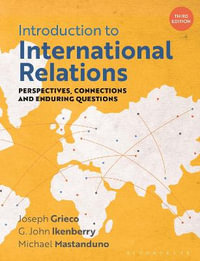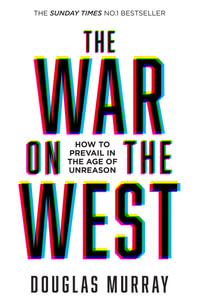
The Muslim Brotherhood
Evolution of an Islamist Movement
Hardcover | 6 August 2013
At a Glance
Hardcover
$86.50
Aims to ship in 15 to 25 business days
When will this arrive by?
Enter delivery postcode to estimate
How the Muslim Brotherhood rose to power in Egypt, and what it means for the Islamic world
The Muslim Brotherhood has achieved a level of influence nearly unimaginable before the Arab Spring. The Brotherhood was the resounding victor in Egypt's 2011-2012 parliamentary elections, and six months later, a leader of the group was elected president. Yet the implications of the Brotherhood's rising power for the future of democratic governance, peace, and stability in the region is open to dispute. Drawing on more than one hundred in-depth interviews as well as Arabic language sources not previously accessed by Western researchers, Carrie Rosefsky Wickham traces the evolution of the Muslim Brotherhood in Egypt from its founding in 1928 to the fall of Mubarak and the watershed elections of 2011-2012. Further, she compares the Brotherhood's trajectory with those of mainstream Islamist groups in Jordan, Kuwait, and Morocco, revealing a wider pattern of change. Wickham highlights the internal divisions of such groups and explores the shifting balance of power among them. She shows that they are not proceeding along a linear path toward greater moderation. Rather, their course has been marked by profound tensions and contradictions, yielding hybrid agendas in which newly embraced themes of freedom and democracy coexist uneasily with illiberal concepts of Shari'a carried over from the past. Highlighting elements of movement continuity and change, and demonstrating that shifts in Islamist worldviews, goals, and strategies are not the result of a single strand of cause and effect, Wickham provides a systematic, fine-grained account of Islamist group evolution in Egypt and the wider Arab world.
Industry Reviews
ISBN: 9780691149400
ISBN-10: 0691149402
Published: 6th August 2013
Format: Hardcover
Language: English
Number of Pages: 384
Audience: College, Tertiary and University
Publisher: Princeton University Press
Country of Publication: US
Dimensions (cm): 23.4 x 15.2 x 3.18
Weight (kg): 0.65
Shipping
| Standard Shipping | Express Shipping | |
|---|---|---|
| Metro postcodes: | $9.99 | $14.95 |
| Regional postcodes: | $9.99 | $14.95 |
| Rural postcodes: | $9.99 | $14.95 |
How to return your order
At Booktopia, we offer hassle-free returns in accordance with our returns policy. If you wish to return an item, please get in touch with Booktopia Customer Care.
Additional postage charges may be applicable.
Defective items
If there is a problem with any of the items received for your order then the Booktopia Customer Care team is ready to assist you.
For more info please visit our Help Centre.
You Can Find This Book In
This product is categorised by
- Miscellaneous Items
- Non-FictionReligion & BeliefsIslam
- Non-FictionSociety & CultureSocial GroupsSocial & Cultural Aspects of Religious GroupsIslamic Studies
- Non-FictionPolitics & GovernmentPolitical Science & Theory
- Non-FictionPolitics & GovernmentPolitical ActivismRevolutionary Groups & Movements
- Non-FictionHistoryRegional & National HistoryAsian HistoryMiddle Eastern History
- Non-FictionLawJurisprudence & General IssuesSystems of LawIslamic Law























